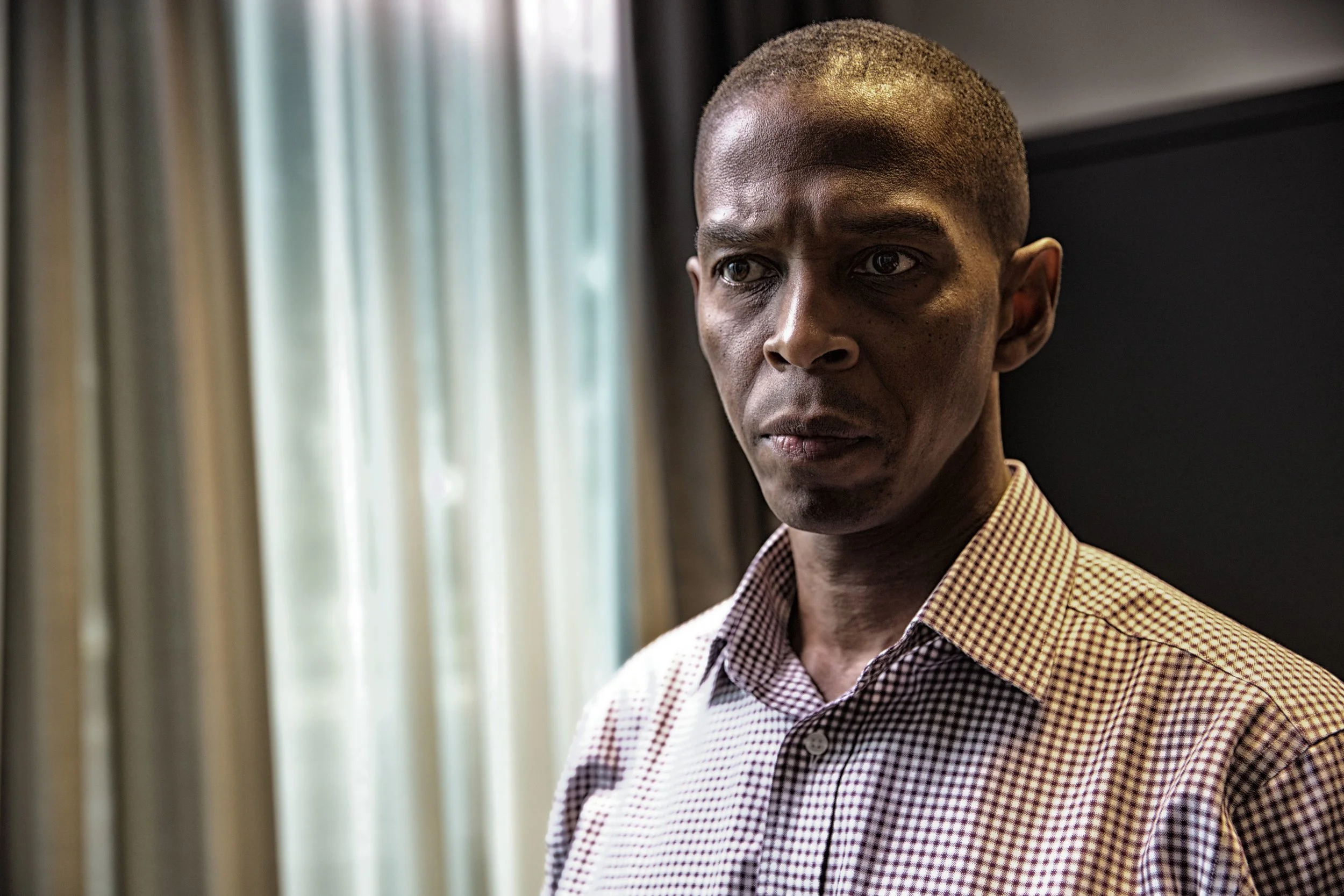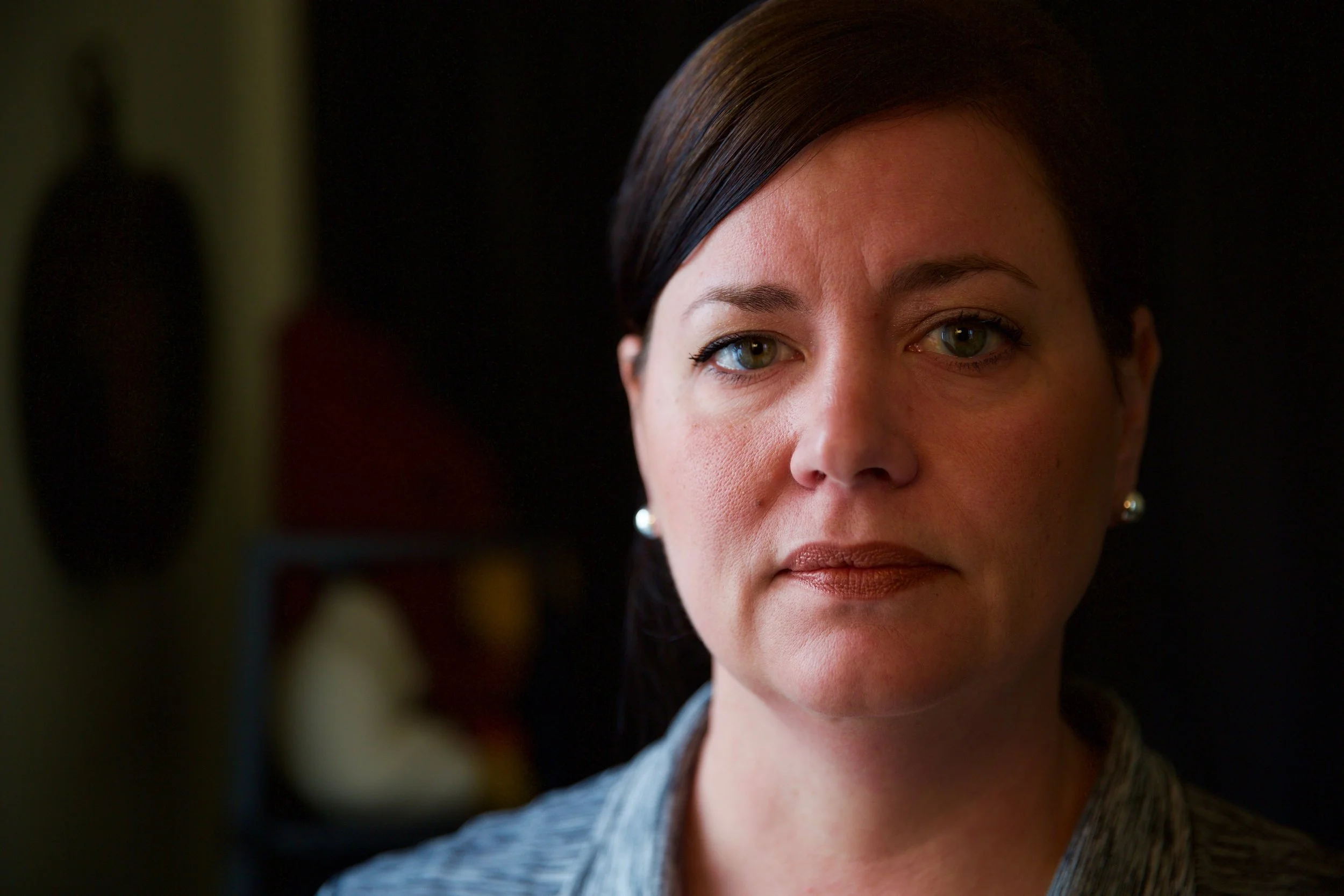Richmond Justice
STORIES + PORTRAITS
Lillie | May 20, 2016
Lillie Branch-Kennedy is the founder of Resource, Information, Help for the Disadvantaged (RIHD), a volunteer-run organization advocating for reform in sentencing, prison conditions, and the restoration of civil rights for ex-offenders. Previously, she worked as a federal employee providing accounting services for the IRS and other agencies. Beginning in June, RIHD will launch its fifth Mobile Justice Tour, which aims to raise awareness of mass incarceration and mobilize communities to call for action.
When I grew up, “the law” signified the good people. My dad worked at a juvenile detention center in the Bronx and as a probation officer. He was a teacher and a mentor—he helped young people get on their feet and earn degrees. My mother was a special education teacher. They raised five kids, and gave us every opportunity. You wouldn’t guess that my son is incarcerated. It doesn't seem like a troubled kid would come out of this family. He was the first and only person in our family to be incarcerated, to have a felony record, or even to be in trouble. But that’s the story.
I grew up in New York at the worst time. Drugs and violence had taken over. My husband and I moved our family south to get away from that—and we did. We escaped. But my son, Donald Allen, resented us leaving. He was 10 years old at the time, a talented and gifted child who hated homework because he didn’t need to study in order to do well. He was in Cub Scouts, and later joined ROTC. He was admitted to Virginia State University—my father’s alma mater—with plans to study sports education and physical therapy.
When I visited Donald at Virginia State, all I saw was partying and drinking. It was a mess. I wanted to get him out of there, but he didn’t want to leave. That was the start of his downfall. Not long after, the university's administration called me to say he had a breakdown. When he returned home, he wasn’t the same person. I took him to Henrico County Mental Health Services, and they wanted to help. But Donald wouldn’t stay.
In 2001, my son was arrested as an accessory to robbery. Along with four friends, he stole do-rags, cigarettes, and lottery tickets. The first I learned of it was from a TV report on the crime. The police were were looking for a tall black man in his 20s. It never occurred to be that it could be my son. By that time, he was interning at a local physical rehabilitation center and taking a class at VCU.
He was charged as an accessory because he drove his car to the scene of the crime. The four others involved were released. These guys were suspected of committing a robbery months before they met my son, and law enforcement wanted my son to snitch on them. He refused. They found the stolen items in Donald’s apartment. And because I co-signed the lease to Donald’s apartment, they threatened him that I would be blamed for everything. In response, he testified about his role in the robberies, but didn’t say what the other guys did.
I didn’t know anything about sentencing or parole—why would I? I was so green. My dad had passed away; he would have told me what to do. In a plea deal, the prosecutor said she’d give him 13 years. Someone told me: “You better get a lawyer.”
My husband and I hired a well-known defense attorney, who told us that the sentence would be between three and five years. Each defendant is given a presentence report that provides a criminal history—my son had none—and cites guidelines for the sentence. The judge asked for one presentence report that would charge Donald for the robberies only, which would mean three years in prison. And he asked for a presentence report that would add on a charge for simulating a weapon. The victims said they didn’t see Donald’s hands, and this allowed the prosecution to charge him with simulating possession of a weapon even though he hadn't done so. That report recommended a five-year sentence. From family members, teachers, ROTC, and our church, Donald received 21 letters requesting leniency. A staff member at Henrico County Mental Health Services wrote a letter stating that Donald needed psychiatric treatment, not incarceration.
The judge on the case was part-time retired and known for giving harsh sentences. He told my son that he had no sympathy for him, that the letters showed that Donald had every opportunity to succeed. He said that Donald hadn’t repented, because he had refused to give information about his friends. The letters asked for leniency. The judge said, “No.”
For each count of robbery, the judge gave my son 25 years, 25 years, 25 years. He added time for a simulated weapon charge, making the total sentence 128 years. I was about ready to fall on the floor. I heard the words but couldn't understand them. What does this long sentence have to do with this minor case? Does the judge have the wrong person? My son stood there listening to the judge, and he didn’t cry. But he said to me, "Ma, don’t come to prison. Don’t come visit me. My life is over.”
We learned that we had 21 days to file a writ of error, and our lawyer did so on the 17th day. The judge reduced the sentence to 28 years. But what happened to the three to five years we were promised? What happened to 13 years suggested by the prosecutor? I didn’t know parole had been abolished. What do you mean, I asked—he has to serve all 28 years? For stealing a few cheap things? What do you mean—he’s going to be incarcerated at Wallens Ridge, a prison that’s eight hours away from our home? They sent my son to the mountains. Right after his birthday, on a cold day in January.
My son became an advocate before I did. He inspired me. He started seeing things in prison that he didn’t understand. He said, “Ma, some of these people haven’t see their families in years. Can you bring them down next time you come?” That’s how our trips to southwest Virginia started, back in 2002. They continue today; in fact, there’s one happening this Friday.
“This is not about our family; this is about justice. When we know we’ve done something wrong, we have to fix it.”
It was during those long van trips when I started hearing families’ stories that sounded a lot like mine. They didn’t know about parole having been abolished. They didn’t know about the 21-day rule. There were families from New York and California and Florida whose sons had been thrown into the mountains of rural Virginia. I learned that my son’s situation was the norm—not an exception.
I started calling and writing letters. I asked the warden why there couldn’t be more vending machines in the visitation room. I asked why families couldn’t have more than two hours of visitation, after they’ve driven at least eight hours from home.
The real turning point came when the county where the prison is located had a water shortage. The county leaders chose to deal with it by turning off the water at Wallens Ridge. The prison controlled the ability to flush the toilets, all at once, and they did so only twice a day. Mind you, the men are in their cells 23 hours a day, there are two of them to a room, and the toilets have no cover. My son’s bed was right next to the toilet. One day they turned on the master flush, but it backed up—and all that mess got on my son. He called and said, “Ma, if you don’t get me out of here, I’m going to commit suicide.” That’s what makes me tear up. It’s not the other prisoners that are the problem. It’s not even the guards. It’s the living conditions. He said “I can’t live like this.” That was it.
I gathered a few families and we met at my dining table. We called the governor. We raised our voices about inhumane treatment at Wallens Ridge and Red Onion, the two supermax prisons in southwest Virginia. Our voices started to make a difference: some conditions improved, and we got people who we weren’t supposed to be there moved out of those facilities. Over the years, I learned that our voices will be heard most clearly if amplified by our legislators. "The Department of Corrections works for us," one state representative told me. "If you're having a problem with them, talk to me."
Today, we’re working on two bills. The first aims to correct the injustice resulting from five years of unfair jury trials. Parole was abolished in 1995, but the law prohibited judges from informing juries that defendants would not be entitled to parole. Parole had been on the books for generations, so juries gave lengthy sentences under the impression that defendants would serve only a portion of the time. One prisoner, Richard Fishback, sued Virginia over this in 2000. He won, and the court's ruling directed judges in all non-capital cases going forward to inform juries that parole had been abolished. We want this decision to be made retroactive, because hundreds of people received sentences from juries unaware of the impact of their verdicts. To be clear, we're not asking for these prisoners to be released or even re-tried. We're asking for them to be sentenced to a fair amount of time.
The second bill we're supporting addresses the use of discretionary sentencing guidelines. The law states a judge shall file a written explanation for any sentence that is over or under the guidelines noted in the presentence report. But the same law declares that convicted individuals may not appeal their sentences if the judge does fail to file an explanation. Through an investigation, we learned that within a six-year span alone more than 3,000 people were sentenced above or below presentencing guidelines without a written explanation. Why should the law permit a judge to break the law?
I’m retired. I’m not suppose to be in this mess. And neither of the bills we’re working on would affect my son. The judge on my son's case provided a written explanation for his egregious sentence. This is not about our family; this is about justice. When we know we’ve done something wrong, we have to fix it. I tell legislators: In supporting this bill, you’re not taking the side of the prisoner. You’re taking the side of justice.
—interviewed May 16, 2016
















